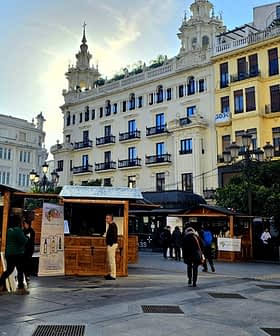Spain’s proposed national strategic plan to implement the latest iteration of Europe’s Common Agricultural Policy (CAP) will not provide as much assistance to traditional olive growers as previously hoped.
Mercedes Morán, the former director-general of agricultural policy for the autonomous community of Extremadura and a member of the team of experts that consulted on the CAP, said traditional olive growers will receive less aid and face more hurdles in acquiring it.
She told Agropopular the funding that Minister of Agriculture Luis Planas previously pledged to traditional growers now “has become a sectoral program to which only €30 million will be allocated per year.”
See Also:Andalusian Officials Criticize Loss of Funding for Farmers in Proposed CAPInstead of distributing funds directly to the farmers, the government will give the money to producer organizations.
These organizations will have to comply with new government regulations that have yet to be determined in order to receive the funds and must present the government with an operational program.
These operational programs must be multi-year plans that include actions to invest in efficient energy use, improved worker conditions, quality assurance programs, soil conservation and tangible assets.
For farmers to receive any funding under the national strategic plan, they must have a certain volume of production from traditional groves.
The government has also clarified its definition of what constitutes a traditional olive farm for oil production: they must be dry-land groves with a maximum density of 140 trees per hectare, a slope greater than or equal to 20 percent or the olive trees must be grown in terraces.
However, the definition for what constitutes traditional table olive production may be determined by the autonomous communities.
According to Juan Vilar Strategic Consultants, traditional groves make up about 70 percent of all Spanish olive farms.
Spain’s Ministry of Agriculture, Fisheries and Food has previously said the sector employs 350,000 workers, including 15,000 jobs in mills, and pays almost €32 million in wages annually.
“This is what has remained of the support for traditional olive groves in the new CAP, which is far from what the minister promised at first and with a ridiculous budget,” Morán concluded.








